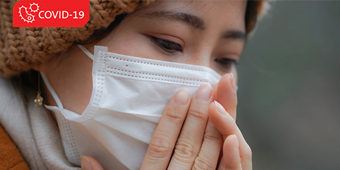Executive Order: Vaccines Reduce Pneumonia Risk

Find Your Perfect Match
Answer a few questions and we'll provide you with a list of primary care providers that best fit your needs.
Former President George H.W. Bush brought to national attention the seriousness of pneumonia for older adults when he entered the hospital January 14 with shortness of breath.
Now that our 41st president is out of intensive care and on the mend, Health Now checked in with Marcus Washington, MD, of Premier Health Family Medicine. We asked him about who’s most at risk and how to prevent pneumonia, an infection of the lungs.
Pneumonia is most risky for people with less developed or weakened immune systems. That includes senior citizens, 65 and over. “As we get older, it gets more difficult to fight off illness,” says Dr. Washington.
Besides older adults, others at greater risk include:
- Children under 5
- People with chronic conditions, such as diabetes, heart disease, kidney disease, HIV, and lung diseases like COPD (chronic obstructive pulmonary disease), emphysema and asthma
- People who smoke
Today pneumonia is less of a threat than it used to be. People still die from it, but far fewer than years ago or in less developed areas of the world. The credit, says Dr. Washington, goes largely to immunizations and antibiotics, as is the case for many diseases.
Immunizations are at the forefront of preventing or decreasing the severity of pneumonia.
If you’re 65 or older, you should be immunized against pneumonia. “Or sooner, if you have certain chronic health conditions,” Dr. Washington advises. Ask your doctor.
Dr. Washington also recommends an annual flu vaccination. “Flu vaccinations play a major role, not just to prevent flu, but to prevent complications that come from getting the flu, such as pneumonia.”
Other ways to reduce your risk and that of others:
- Wash your hands regularly
- Clean frequently touched surfaces like door knobs
- Sneeze and cough into your elbow
- Avoid smoking and being around cigarette smoke
- Keep your health conditions under control
- Practice good health habits. That includes exercise, good nutrition, stress management and plenty of sleep.
As always, be sure to talk with your health care provider about the immunizations best suited to your individual situation.
Find Your Perfect Match
Answer a few questions and we'll provide you with a list of primary care providers that best fit your needs.
Source: Marcus Washington, MD, Premier Health Family Medicine; Centers for Disease Control; ABC News




